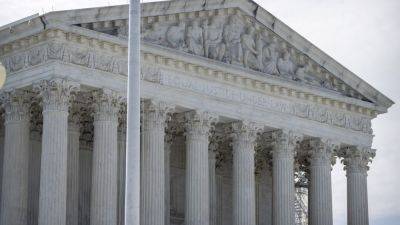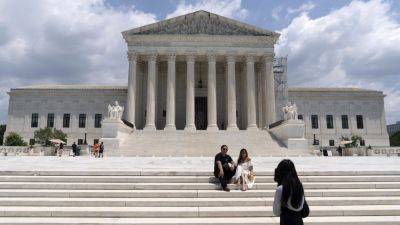Early divisions signal bitter internal conflicts as Supreme Court turns toward final decisions
CNN —
From a blockbuster Second Amendment decision to a more technical case about retaliatory arrests, sharp disagreements have emerged on the Supreme Court over the reasoning of recent rulings – divisions that could signal an especially fiery end to the current term.
Even as the court is sometimes finding wider-than-expected majorities for relatively limited outcomes, the nine justices are regularly in conflict over the meaning of decisions. The quarreling over doctrine and rationale may partly explain why so many majorcases remain before the court’s term is expected to end as soon as Friday.
A demonstrator holds a sign outside the U.S. Supreme Court as the justices hear arguments on former President Trump's claim of presidential immunity over criminal charges over his efforts to overturn the 2020 presidential election results in Washington, U.S., April 25, 2024.Related article Supreme Court may rule on Trump’s immunity, abortion access and climate protections this week
That dynamic was particularly notable last week in a blockbuster decision on guns, which drew eight justices into the majority but five separate concurrences bickering over the court’s methodology. A number of lower-profile cases have also sparked deep doctrinal divisions, even when the final vote count is lopsided.
“It does seem, at least anecdotally, unusual to have this many separate opinions in cases with relatively lower stakes,” said Steve Vladeck, CNN Supreme Court analyst and professor at the University of Texas School of Law. “Only the justices know why, but it certainly at least suggests that the court is having trouble reaching consensus, even in contexts in which historically it was better able to do so.”
In an important ruling







